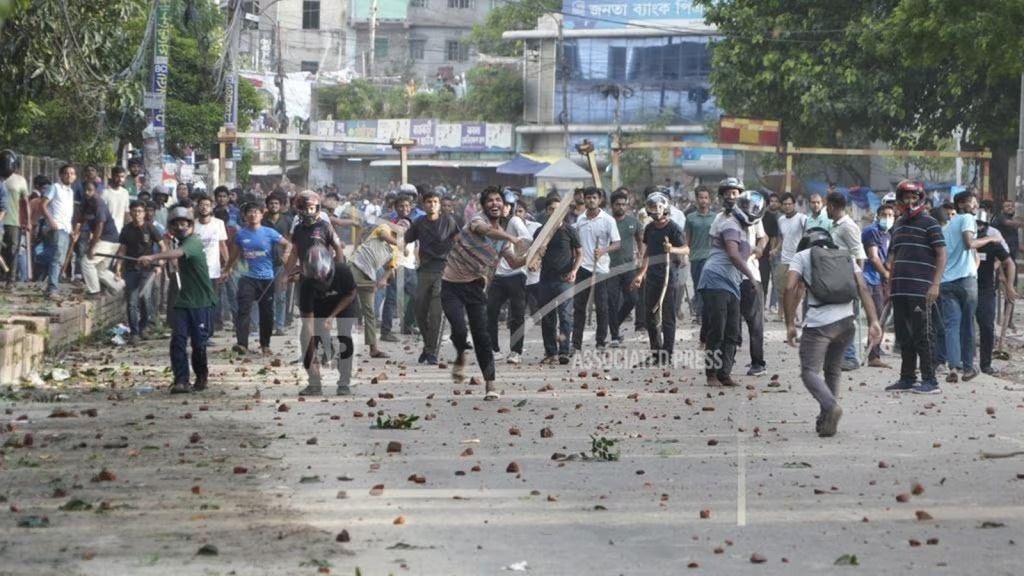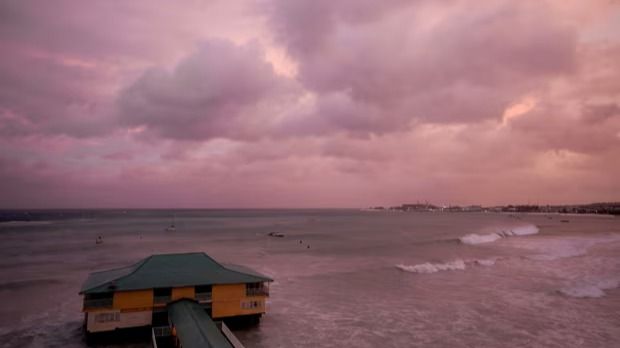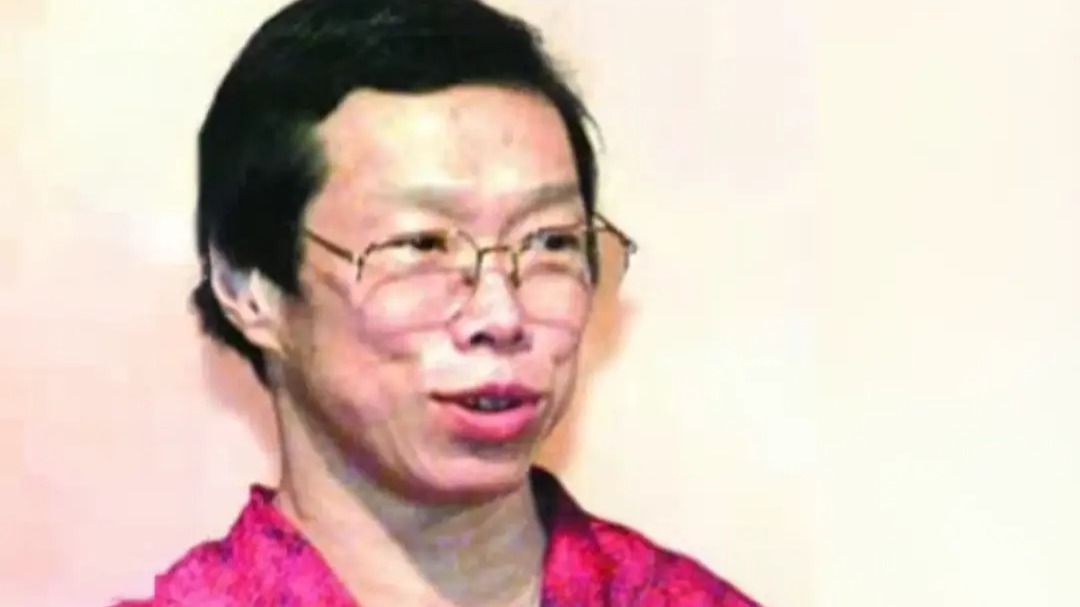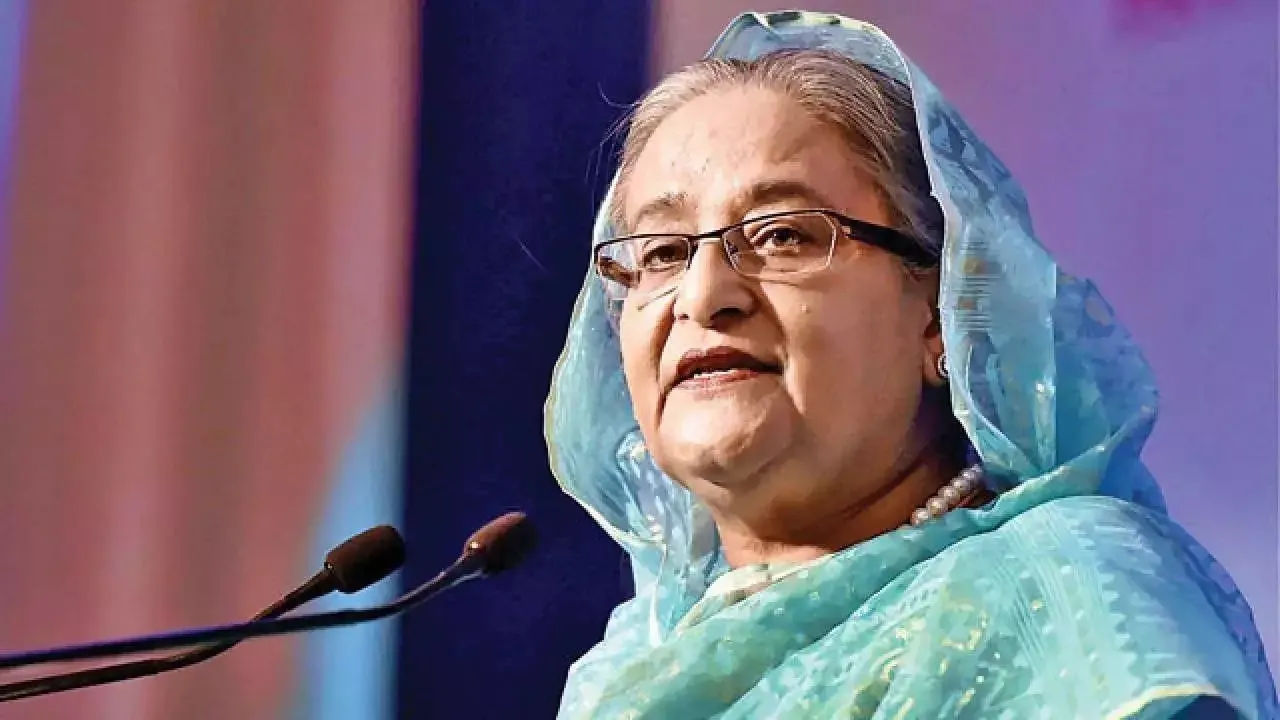Dhaka: At least six people, including three students, were killed and more than 100 others injured on Tuesday as protesters demanding reforms of the quota system in government jobs clashed with police in major cities across Bangladesh, forcing the closure of schools and colleges.
Police and major news outlets reported two new deaths in the capital Dhaka and the northeastern port city of Chattogram while earlier today, four deaths were reported from the capital, Chattogram and northwestern Rangpur.
According to the reports, at least three of the deceased were students while the violence injured some 400 others on Tuesday as protests demanding quota system reforms spread across major Bangladesh cities a day after it took a violent turn after a week of street demonstrations.
Authorities today called out the paramilitary Border Guard Bangladesh (BGB) troops in four major cities after hundreds of policemen in riot gear overnight fanned out in public university campuses across the country.
The government, meanwhile, ordered closure of schools, and colleges until further order amid escalated violence.
“All high schools, colleges, madrasahs (Islamic seminaries) and polytechnic institutes under the purview of the Department of Secondary and Higher Secondary Education will be shut down until further order, considering the security of the students,” an education ministry spokesman said.
The violence nearly emptied the usually crowded capital where unidentified people set on fire two buses after exploding dozens of Molotov cocktails while several parts of the city witnessed sporadic clashes causing roadblocks leaving thousands of people stranded in the streets and their workplaces. The clashes, however, erupted on Monday as activists of ruling Awami League’s student front confronted the protestors who insist the existing quota system was largely debarring the enrolment of meritorious students in government services.
Demonstrators accused the ruling party’s student wing Bangladesh Chhatra League of attacking their “peaceful protests” with backing from police.
The protesters blockaded highways and railway routes in four major cities of central Dhaka, northwestern Rajshahi, southwestern Khulna and the major port city Chattogram.
Police fired tear gas canisters and rubber bullets as university students battled with counter-protesters armed with sticks and brickbats.
Rival student groups marched in several key locations around the capital Dhaka, some throwing bricks at each other, with traffic in the city of 20 million almost ground to a halt.
Students of the premier Dhaka University took the lead in the latest one-week protests for recruitment in first- and second-class government jobs, demanding seats to be filled based on talent, reforming the existing quota system.
The protesters said they were staging peaceful demonstrations on Monday at two public universities in Dhaka and its outskirts when they were attacked by student activists from the ruling party activists armed with sticks, rocks, machetes and Molotov cocktails.
Under the existing system, 30 per cent jobs are reserved for descendants of 1971 Liberation War veterans, 10 per cent for administrative districts, 10 per cent for women, five per cent for ethnic minority groups and one per cent for physically handicapped people. Every year some 3,000 government jobs open up to nearly 400,000 graduates.
The student protest appears to be the first major demonstration against Prime Minister Sheikh Hasina’s government since she won a fourth straight term in January.
Hasina said on Tuesday that “war veterans should receive the highest respect for their sacrifice in 1971 as they joined the war with whatever they had, abandoning the dream of their own life, leaving behind their families, parents and everything”.
She also criticised the protesters saying the war veterans must get the benefit instead of those who opposed the creation of Bangladesh siding with Pakistani troops in 1971, known as “razakars”.
The quotas were stopped under a government circular in 2018 after mass student protests but last month, the high court ordered the quotas for veterans’ families to be reinstated, angering students and triggering new demonstrations.
The Appellate Division of the unitary Bangladesh’s Supreme Court last week, however, temporarily halted the high court’s order for four weeks while the chief justice asked protesting students to return to classes, saying the apex court would issue a decision in four weeks.
The protests, however, continued halting traffic in Dhaka.
Amnesty International urged Bangladesh authorities to “immediately guarantee the safety of all peaceful protesters” while the US State Department spokesman Matthew Miller also denounced the “violence against peaceful protesters”, prompting a rebuke from Bangladesh’s foreign ministry.
(Except for the headline, this story has not been edited by Republic and is published from a syndicated feed.)
Violent Clashes Over Job Quota Reforms in Bangladesh Leave Six Dead, Over 100 Injured world-news World News | Latest International Global World News | Todays Breaking News Headlines




